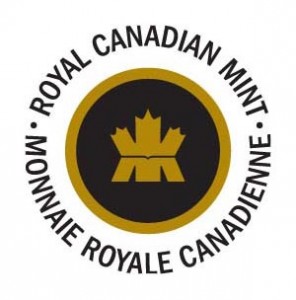Training Programs
We believe training can serve to eliminate conflict and have developed many programs to serve this vision. Our courses range from delivery at the employee level up to specialized initiatives for Management, and dispute resolution training.
Our Investigation training programs are designed to equip your management, supervisors, human resource staff and internal investigators with a proven process. We have trained thousands of investigators in our many years in the field. With over 23 years of investigation experience and dealing with conflict in Canadian workplaces (in every industry) – participants can expect a powerful and realistic learning environment.
Our Investigation workshops are offered in various cities across Canada. You may also choose to bring our experts to your organization – all our programs can be delivered on site and tailored to your needs.
Seating is limited. Hill Advisory Services will provide you with a confirmation to guarantee your seat. Payment is required prior to attending, an invoice will be supplied with your confirmation. You can register for one of our classes here.Register for one of our classes
Need a Customized Training Program?
Should you wish to tailor a program to meet your specific needs, or request a quote on hosting one of our programs in-house, our experienced facilitators would be pleased to discuss these options. You can contact us at (204) 831-7661, or email Dylan Hill or Cam Hill
Upcoming Events
Virtual (CST) – Investigation Level 1 & 2
Level 1 – August 19-21, 2024
Level 1 & 2 – August 19-23, 2024
Level 2 – August 22-23, 2024
*Prior attendance in Level 1 requiredLive events hosted via Zoom
Read moreCalgary, AB (Classroom) – Investigation Level 1 & 2
Level 1 – October 21-23, 2024
Level 1 & 2 – October 21-25, 2024
Level 2 – October 24-25, 2024
Read more
*Prior attendance in Level 1 requiredVIRTUAL (CST) – INVESTIGATION LEVEL 1 & 2
Level 1 – November 18-20, 2024
Level 1 & 2 – November 18-22, 2024
Level 2 – November 21-22, 2024
*Prior attendance in Level 1 requiredLive event hosted via Zoom
Read more
Virtual (CST) – Investigation Level 3
Level 3 – December 3-5, 2024
*Prior attendance in Level 1 & 2 requiredLive event hosted via Zoom
Read moreVANCOUVER, BC (CLASSROOM) – Investigation Level 1 & 2
Level 1 – January 20-22, 2025
Level 1 & 2 – January 20-24, 2025
Level 2 – January 23-24, 2025
Read more
* Prior attendance in Level 1 requiredWINNIPEG, MB (CLASSROOM) – Investigation Level 1
Level 1 – February 24-26, 2025
This is an introductory announcement. Please contact us for further details.
Offered inn partnership with CPHR Manitoba
Read more
HARASSMENT AWARENESS & PREVENTION, INTERVENTION STRATEGIES FOR LEADERS - Upcoming Classes
Dates TBD
Training Programs
TRAINING OUTLINE
This three-day training is designed for Human Resources staff; Union Representatives, workplace harassment advisors, designated conflict officers, harassment investigators and managers at all levels within any organization. This training utilizes a combination of theory-based lectures and hands-on practical exercises involving group tasks and investigation scenarios with professional actors.
Participants learn how to conduct a harassment complaint investigation, from the taking of initial statements through to the questioning of witnesses to final report writing. Utilizing an effective balance of theory and practical exercises the experienced facilitators of Hill Advisory Services present a wide array of information via lectures, handouts and participatory exercises on such topics as:
- The legal and ethical roles and responsibilities of investigators
- Investigator questioning techniques
- What investigators require to conduct an interview
- Preparing for the investigation and interview
- Conducting the interview
- Assessing information and evidence
- The mechanics of final report writing
- The principals of civil law as they relate to the process
- Witness Statements
- Report analysis
- A variety of handouts including tips on the investigation process
TRAINING AGENDA
1. Roles and Responsibilities of Investigator
An outline of the mandate and role of the investigator.
2. Preparing for the Investigation
A systematic check list of all the areas needed to be prepared before you interview.
3. Developing Questions
An examination of questioning techniques and strategies used in order to maintain control of the interviewing process.
4. Questioning Techniques
How do you control someone who rambles?
How do you handle objections?
Tips to maintain order, handle dissension; obtain facts.
5. Conducting the Interview
Actors become a Complainant, a Respondent and a witness so participants have the opportunity to experience interviewing 3 witnesses during this training.
6. Writing Statements
How do you write statements for the investigation?
How do you phrase the details of the case to defuse not accelerate the complaint?
Do emotions belong in written statements?
7. Assessing the Information
Participants assess the information collected from the interviews to decide what further interviews are needed, what evidence has been substantiated and what evidence needs to be substantiated.
8. The Report
An examination of what a Report should and should not contain and why.
9. Principles of Natural Justice
An examination of what the principles are and how they relate to the investigative process.
After a three-day course on the fundamentals of Harassment (or any) Investigation it can be tempting to consider yourself an expert. This is something we discuss with every class. The danger is very real. Feeling as if you are an expert can lead to lack of flexibility or a closed minded approach. This can be deadly in the highly emotional and high-stakes landscape of conflict in the workplace.
In Level Two we truly take it to the next level. In addition to more complex interviews, we will advance the conversation to explore the Art of interviewing and the subtleties, not just the basics. In Level Two we will ask more of you and our program focuses intensely on the immediate feedback of our experienced facilitator.
During Level Two, the majority of time in the Program is spent on interviewing witnesses; with interviews occurring throughout Level Two. Participants are guided through interviewing witnesses; developing a witness statement, and preparing questions for the witnesses. On the completion of witness interviews, participants prepare for and conduct re-direct interviews with the primary parties. The areas of practical learning in Level Two are:
Interview Preparation
Witness Interviews
Statement Development and Signature
Preparation for re-direct interviews
Re-direct interviews
Weighing evidence and forming conclusions
Providing evidence to support conclusions
Study materials are provided to each participant prior to the course.
Note: Clients who have attended Level One in the past are welcome to join us for Level Two in any location on our current schedule.
INVESTIGATION LEVEL THREE
As a graduate of Hill Advisory Services Harassment Investigation Level One and Two program, you have a keen understanding of the complexities of a well run investigation. Core skills include, information analysis (both written and verbal), question planning, conducting the interview and producing a summation of the entire process.
Hill Advisory Services is pleased to introduce the next level of our highly acclaimed, interactive training series, Harassment Investigation Level Three.
During the three days of the workshop you can expect to work in a small group of professionals to:
• Examine common errors in statement writing
• Interview a variety of witness types
• Analyze the information collected and redirect witnesses based on lessons learned
• Write statements and final reports
As always, the facilitators bring a wealth of experience to the training, being involved solely in this area of work since 1990. Our facilitators will provide:
• Clear, on-going personal feedback
• One on one coaching sessions to identify areas of strength and areas to be developed
• Powerful and insightful examples based on actual cases
• Constant encouragement and good humour!
Class size will be limited for this event and seating will be provided at the sole discretion of Hill Advisory Services, we look forward to seeing you!
TRAINING OUTLINE
This three-hour training is intended to be run in one location numerous times, (back to back) in order to provide introductory awareness and prevention training to all personnel within an organization (20 – 25 participants at a session). This training can be tailored to the specific requirements of an organization and is generally utilized in conjunction with the introduction of new or revised workplace harassment policies and/or procedures.
The training utilizes a combination of theory-based lectures and casework involving group work. All case studies utilized are real so that the result of the case is given to the participants to further enhance the learning. The following subjects are discussed and presented during this training:
TRAINING AGENDA
- What harassment is and is not (according to the applicable legislation)
- Identification of the different types of harassment (according to the client’s policy)
- Clear examples of behaviours that constitute different types of harassment
- Different case studies are examined and discussed to enhance learnings
- Myths pertaining to harassment are examined
- Costs and statistics are reviewed
- Prevention steps to harassment
Unresolved conflict is one of the largest factors in negative workplace experiences and outcomes. The effects of a failure to resolve conflicts at the earliest possible level range from difficulty in hiring and retaining quality employees to receiving fines from external agencies and even being the subject of negative publicity.
Front line leaders are charged with overseeing the day-to-day interactions of their teams. Participating in this training will have many benefits, both at the individual leader level and in the workplace as a whole. A key benefit will be the reduction of formal complaints of harassment and discrimination to external agencies, including Human Rights, and Occupational Health and Safety. An important indirect benefit will be an increase in positive communication within the team and directly with the leader. This will enable the team to work more co-operatively together, to overcome challenges in the work and to leverage all team members’ creative problem solving abilities. At an individual level, a leader who demonstrates a strong track record of partnering in the resolution of conflict at the earliest level will gain a positive reputation and will receive higher performance evaluations and have access to more opportunity within the organization.
The consequences for a failure to develop conflict resolution skills can be dire. There is an increase to the liability for both the leader specifically and the organization as a whole. All Canadian workplaces have a zero tolerance policy for harassment and discrimination and leadership, as an agent of the employer, has the responsibility to take appropriate action when conflict arises. A workplace or work group who has a poor reputation and track record in dealing with conflict at the earliest level will experience difficulty in attracting and retaining the most qualified team members. The direct output of a team in conflict will always be less than that of a team operating co-operatively. Finally, the results of poorly managed conflict can include fines imposed by Human Rights and other external agencies. As this information is often public, the damage to an employer, seeking to gain an “employer of choice” reputation can be devastating.
Leaders are often: provided with technical training, and promoted from within after they have achieved technical excellence. Rarely are they offered training on the topic of managing conflict. Anecdotally, we know that some of the most challenging time spent in the leadership position comes in the area of conflict management.
This training will differentiate itself from the academia surrounding the concepts of conflict resolution by immersing the leader in real-world scenarios, with professional actors, in a facilitated environment. The focus will be on the development of practical skills.
Targeted Audience:
The leaders who will be attending this workshop typically have a need to deal with conflict on an on-going basis. Their experience will range from having participated in conflict resolution up to and including formal investigations, to having no experience at all. Participants will have a range of educational backgrounds from high school level to post graduate designations and degrees.
Learning Objectives:
1. After training, leaders will be able to: identify what harassment is and is not, according to the applicable legislation and policy, identify different types of harassment, make decisions regarding behaviour that may constitute harassment, using case studies, recognize acts of harassment occurring at or away from the workplace, categorize behaviour on a harassment scale and discover how the concept of “one incident” or “a series of incidents” apply, and appreciate the need for action, often involving documentation and consultation with respect to escalating incidents.
2. After training, leaders will be able to identify and analyze the direct and indirect costs to ignoring an escalating workplace conflict. Further explanation. This is accomplished by: small group work and/or large group work to identify the costs, lecture and handout, and leaders will be asked to log ongoing costs of conflict within their team going forward. Discussion will focus on showing leaders how to develop a plan to mitigate conflict, once identified.
3. After training, leaders will be able to demonstrate an ability to intervene in an escalating conflict effectively, apply creative problem solving skills and assess differing levels of conflict in order to apply the appropriate intervention tool.
4. After training, leaders will be able to identify the common pitfalls in conflict management and contrast appropriate interventions including identifying the impacts of taking sides, and modifying common negative behaviours. Leaders will be asked to review and identify some common errors during a live role play with professional actors, to develop a plan for addressing the errors and then to attempt resolution, with clear learning outcomes identified along the way.
Logistics:
This one day workshop is intended to be run in one location numerous times, or as a single day session in order to provide Awareness and Prevention training to Managers, Supervisors and Executives and front-line personnel involved in the early stages of conflict.
The focus of the learning is to bring a broader awareness to the participants as to what their responsibilities are and what resources are available to them to assist with dispute resolution. This workshop can be tailored to reflect the most common, and challenging issues your employee relations team encounters, allowing them to practice the skills necessary to effectively deal with the early stages of conflict and harassment issues.
Contact us to discuss further or request an in-house quotation:
One-Day Program
All learners deserve to be provided a practical, no nonsense, reasoned approach with
the goal of building real world skills. Our area of expertise is conflict management in the
workplace and specifically, Investigations, both formal and informal.
Theory is important, but not to the exclusion of practice. In all of our Workshops,
learners will receive open and frank discussions of the dynamics of conducting
investigations, based on our vast and varied experience, and importantly, receive the
opportunity to develop skills through practice, using professional actors, small group
work and timely feedback.
Our training has received recognition in every industry in Canada, and has provided a
memorable framework for many clients for many years. In this Introduction to the
Investigative process, we take you through a number of topics, including:
• The ramifications of poor work
• Roles and Responsibilities for investigators
• What Investigators require
• Proper information management techniques
• Preparation of formal statements
• Formulating a proper final report that bases conclusions on evidence and is safe
from challenge.
Participants will be provided with an opportunity to work in small groups of professionals
to develop skills in this hands on, experiential based training method. The facilitators will
debrief all tasks to provide insights to expand the learning outcomes.
Please join us for this glimpse into the Investigation Process and take away knowledge,
skills and abilities that will improve your ability to manage conflict in your workplace.
Contact us to learn more about hosting this program on site.
Clients Said
"Learning to identify 'gaps' and base questions to get that info; the entire interview process in the case scenario, I thoroughly enjoyed it all."
Boardwalk Rental Communities
"Amazing how you need to prepare for different personalities when you interview; great learning regarding the difference in interviewing witnesses, Complainant, Respondent and re-direct."
Palliser Health
"All of it, the case was excellent along with the actors. The process that Hill Advisory follows is a great learning tool."
Royal Canadian Mint






